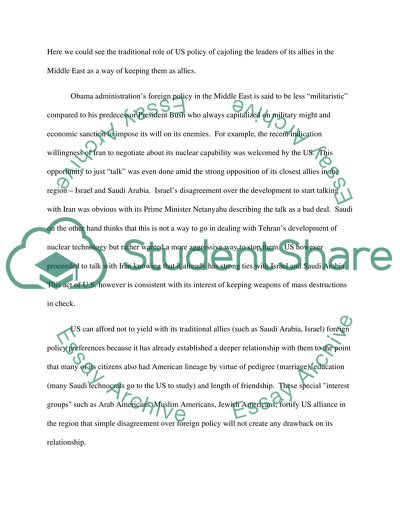US policy in the Middle East Assignment Example | Topics and Well Written Essays - 500 words. Retrieved from https://studentshare.org/history/1493072-us-policy-in-the-middle-east
US Policy in the Middle East Assignment Example | Topics and Well Written Essays - 500 Words. https://studentshare.org/history/1493072-us-policy-in-the-middle-east.


